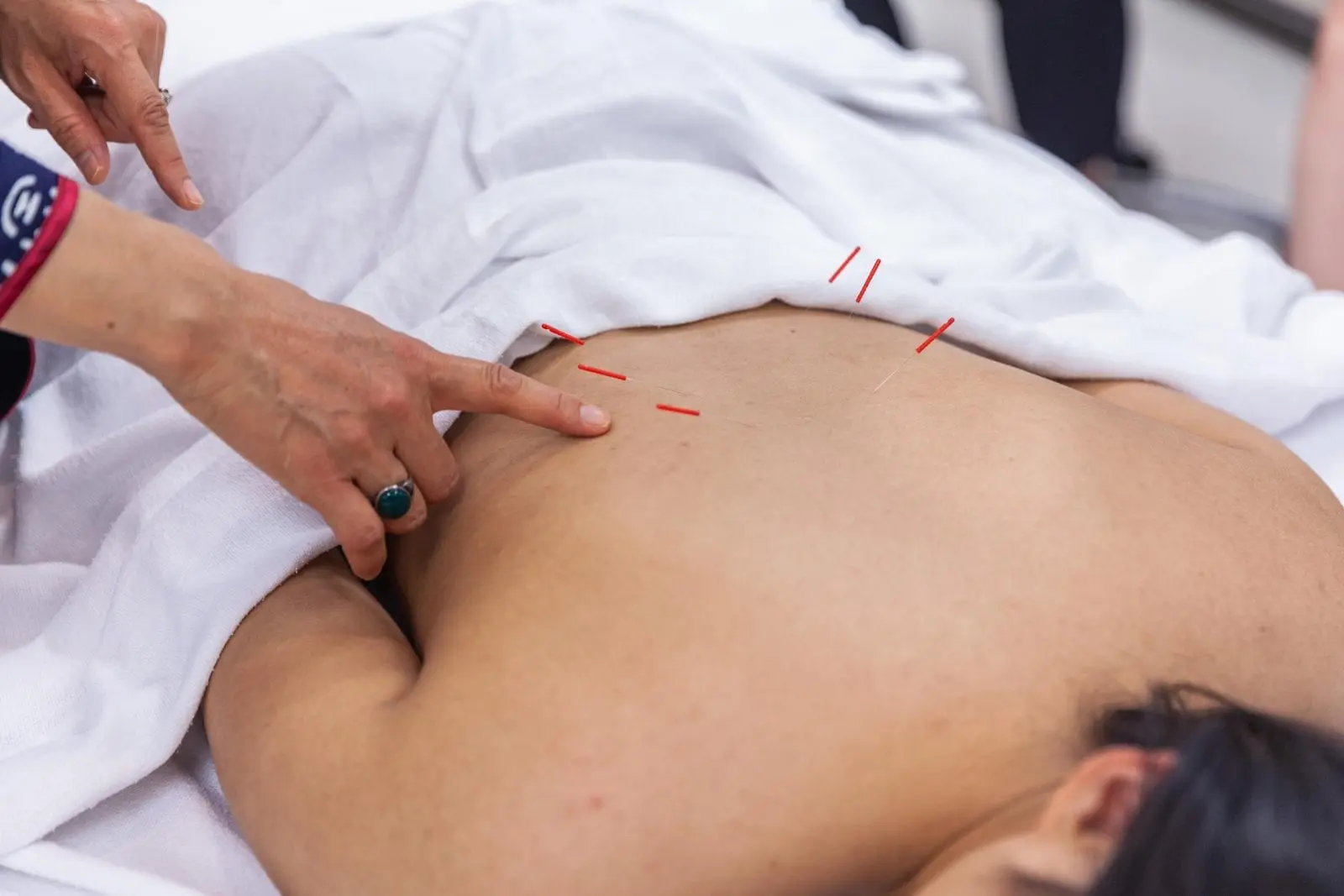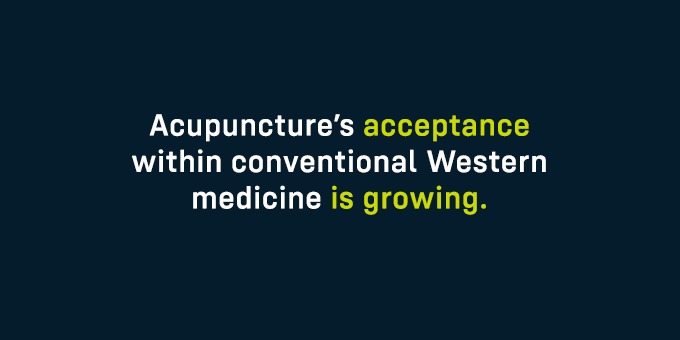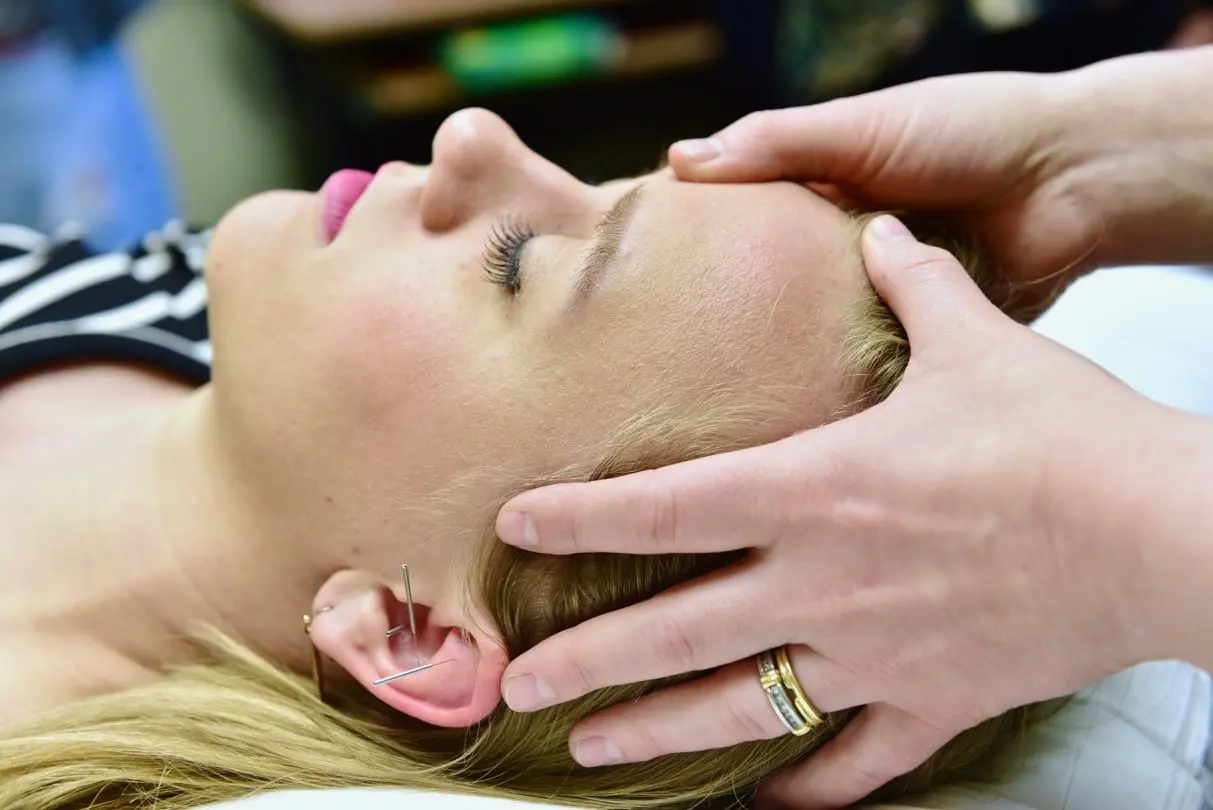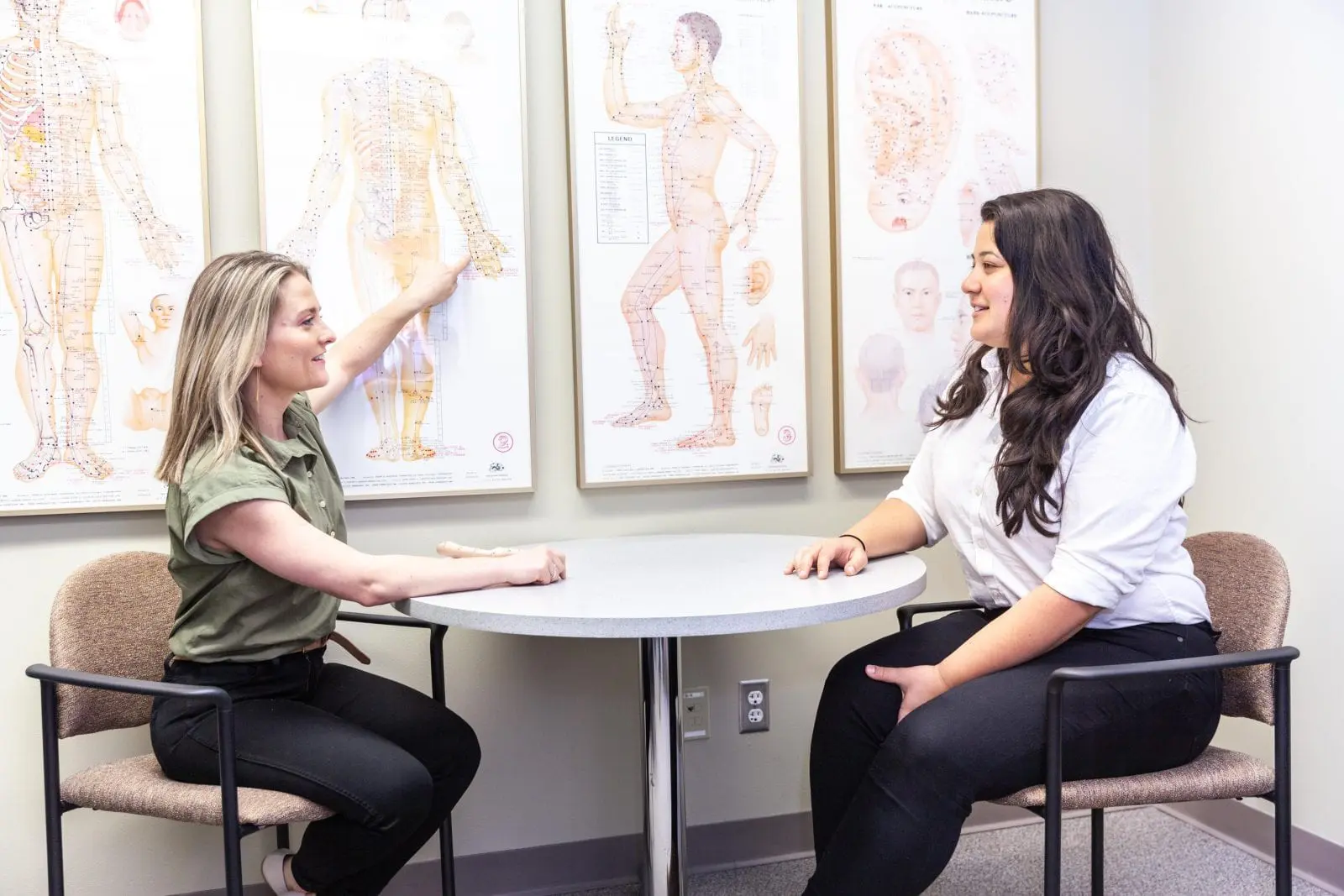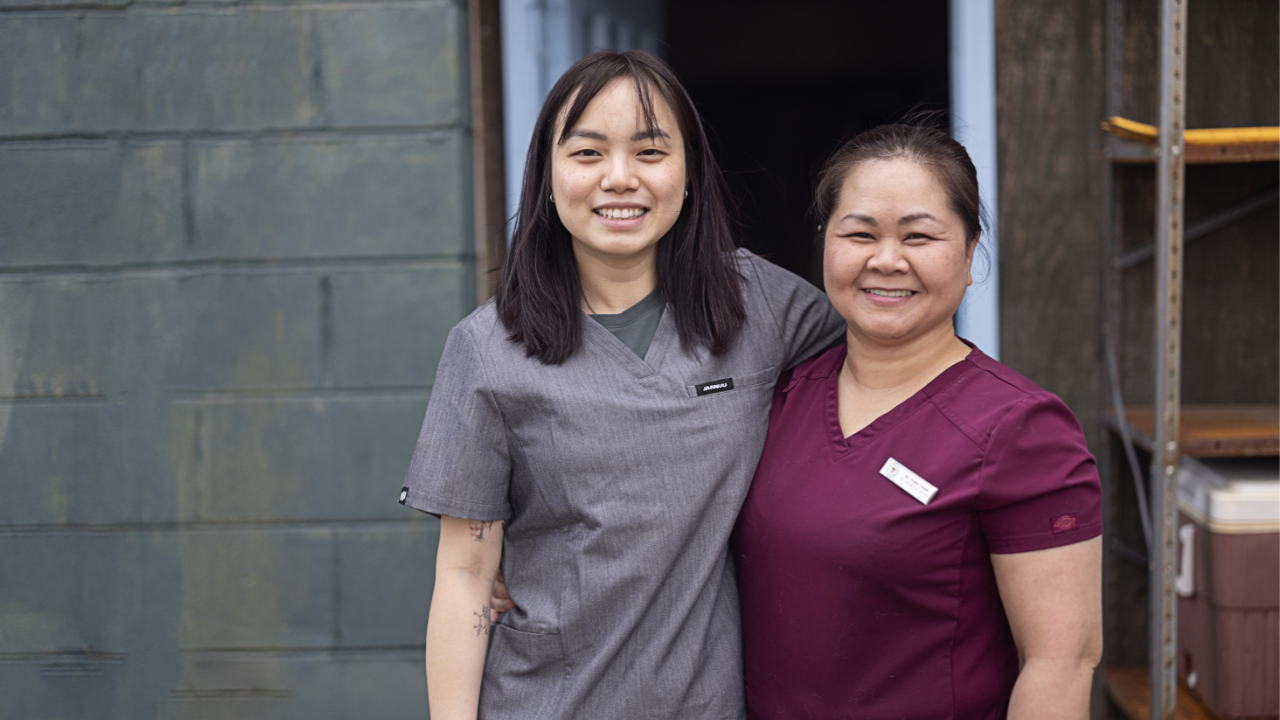Why Acupuncture is a Great Career Choice: Growing Opportunities Within Western Medicine
Acupuncture and mainstream Western medicine may be rooted in different perspectives, but according to Jessica Frier, DAOM, L.Ac., they actually “work well together.”
In fact, acupuncture’s use in mainstream healthcare is becoming more and more common. Below, we’ll discuss examples of that—plus we’ll explore why it’s a great time to become an acupuncturist.
“Acupuncturists bring a completely unique skill set to healthcare,” says Dr. Frier, who is Dean of the Acupuncture and Chinese Medicine College at Northwestern Health Sciences University. “And more than ever, we’re seeing a collaboration between mainstream Western medicine and acupuncture to treat patients. It’s exciting to see the benefits of acupuncture being recognized by more people.”
Why is interest in acupuncture growing?
Derived from Chinese medicine, acupuncture is a form of healthcare that treats illness and improves health by stimulating prescribed points on the body with sterile needles or similar techniques.
Frier says as more people realize the health benefits of acupuncture, there’s also a growing body of research demonstrating the effectiveness of acupuncture.
Here’s just a sampling:
- Researchers at the University of York have found that acupuncture “reduces pain levels and improves mood levels.”
- A large study published in The Journal of Pain demonstrated that “acupuncture treatment is a reasonable option for chronic pain patients.”
- In another example, a Columbia University study concluded, “Acupuncture is an effective and well-tolerated strategy for managing” the side effects of aromatase inhibitors, a common treatment in early stage breast cancer.
These positive developments also extend to the job market. “The career options for acupuncturists have changed dramatically in the last ten to fifteen years. Practitioners are being integrated into many different work settings that weren’t an option 20 years ago,” says Frier.
The benefits of seeing health and wellness through more than one lens
“People are complex, and that’s why I think it’s great when patients can be looked at through different healthcare lenses,” Frier says. “An acupuncturist is going to approach a patient’s health and well-being differently than a conventional healthcare provider.”
For instance, a medical doctor may focus on a patient’s conditions and consider how those can be managed from a biomedical perspective. That can often involve a patient being given treatment in the form of surgery, prescription drugs, or both. “And sometimes that approach is absolutely necessary,” says Frier.
But she also says the approach can leave people feeling like they’ve lost control over their healthcare. “An acupuncturist can balance the situation by guiding a patient’s own ability to help heal and regulate the body,” says Frier. “That’s why I think having both perspectives is so valuable.”
A great example of this is in the use of acupuncture for pain management. Frier says the demand for acupuncture is becoming especially high as mainstream healthcare practitioners—as well as their patients—look for alternatives to opioids for pain management.
Acupuncture’s expanding role in conventional healthcare settings
Acupuncture services are being incorporated into more hospitals and primary care clinics. This is a significant development, says Frier, because it shows that mainstream healthcare providers are doing more than just recommending acupuncture. “It indicates acupuncture’s growing acceptance within the traditional system of Western medicine.”
It’s also a phenomenon occurring right in the backyard of Northwestern Health Sciences University (NWHSU). According to Frier, the St. Paul-Minneapolis Metro Area is actually “leading the charge” in bringing acupuncture into conventional healthcare settings.
For instance, healthcare organizations in the region like Fairview and Allina Health now offer acupuncture to treat a range of health conditions. In fact, Abbott Northwestern Hospital in Minneapolis, part of Allina Health, was the first facility in the country to offer acupuncture in the emergency room.
Other major healthcare organizations that now offer acupuncture include:
In addition, Memorial Sloan Kettering Cancer Center in New York City offers acupuncture treatment to cancer patients. In fact, more than 60 percent of National Cancer Institute-designated cancer centers include acupuncture to manage the symptoms of patients.
Influential healthcare organizations are also endorsing acupuncture. Entities like The Joint Commission, the Food and Drug Administration, and the American College of Physicians® all officially support acupuncture as a viable non-pharmacological option for pain relief.
Could an acupuncture career be right for you?
Beyond acupuncture’s growing acceptance within mainstream medicine, Frier says there are numerous reasons why the profession of acupuncture is a great career choice.
If you’re thinking about becoming an acupuncturist, keep qualities like the following in mind. Do you see yourself in any of them?
You feel called to help others.
Acupuncturists have the opportunity to help patients on multiple levels and connect with them more deeply. For example, an acupuncturist can help people manage pain, reduce anxiety, and find relief from insomnia.
Also, acupuncturists utilize more than just needles. For instance, they can help patients achieve their health goals by making dietary recommendations and suggesting lifestyle changes.
More generally, Frier says that acupuncturists can serve their patients by providing more time and attention. “Conventional medical appointments are important, but they’re often quite brief. Acupuncturists can take more time to sit and discuss a person’s overall health and well-being.”
Watch Angie Weber describe why she switched from a physician’s assistant path to attending acupuncture school at NWHSU.
You like the idea of providing hands-on treatment.
Acupuncturists typically deliver hands-on treatment during patient visits. For example, in addition to using sterile needle techniques, they may also use massage and other soft-tissue treatments.
You want to play a role in the future of healthcare.
Healthcare is changing in profound ways. For example, integrative healthcare bridges treatments like acupuncture with mainstream Western medicine. It’s also an approach that places more value on a patient’s preferences and experiences. If this sounds exciting to you, then an acupuncturist career could be a great fit.
“Think of an integrative clinic as a healing hub for people,” says Frier. “It’s a place where practitioners from different disciplines work together to treat a patient.” If this sounds exciting to you, then an acupuncturist career could be a great fit.
You have an entrepreneurial spirit.
We’ve covered how acupuncture is being used more within mainstream medical facilities. But owning and operating your own clinic is still the most common way that acupuncturists practice.
Though not every acupuncturist wants or needs to have their own practice, many find this option especially rewarding because:
- You can have a more flexible schedule.
- You can create your own atmosphere.
- You have more control over your work pace and earnings.
- You can start a practice more easily thanks to lower initial costs.
See former NWHSU student Stephanie Hylla discuss how she chose to become an acupuncturist and also why she enjoys running her own practice.
You like the freedom of shaping your own path.
Another advantage of the acupuncture career path is that you can choose to focus on serving specific kinds of patients. What are you passionate about? Who do you imagine working with on a daily basis? Here are some examples:
- Patients with fertility issues
- Expectant mothers
- Veterans
- Seniors
- Cancer patients
- Hospice patients
- Athletes
- Underserved patient communities
How should you prepare for a career in acupuncture?
In light of acupuncture’s growing acceptance—and use—in mainstream medical settings, how should today’s acupuncture students be prepared?
Frier says the Acupuncture and Chinese Medicine programs at NWHSU bridge the gap between Eastern and Western medical education by providing students a solid foundation in both approaches.
Be Prepared for Today’s Healthcare Landscape
“If you’re going to be an acupuncturist, you need to also understand the Western perspective on how the body works,” says Frier. “The reality is that your patients will often be coming to you with mainstream medical diagnoses. So here at NWHSU, we make more of an effort to integrate both perspectives because that’s the world we live in.”
For example, in addition to core courses in the theory and practice of acupuncture, students take expanded topics courses like pathophysiology to understand medical conditions from a Western perspective. They also gain clinical experience in a wide range of healthcare settings.
Be Empowered to ‘Choose Your Own Adventure’
NWHSU’s acupuncture education approach does more than prepare students to be effective acupuncturists. Frier says it empowers them. “Once you have this balanced foundation of knowledge, you’re better able to shape the direction you want to take your career. And no two acupuncturists are the same. It really is a ‘choose your own adventure’ profession.”
Take the next step toward becoming an acupuncturist
Acupuncture’s expanding use within Western medicine makes this a great time to join the profession. If you’d like to learn more, take the next step by checking out How to Become an Acupuncturist.
And if you’d like to talk to someone right away about becoming an acupuncturist, contact NWHSU today!
LEARN MORE About Our Acupuncture and Chinese Medicine Programs
